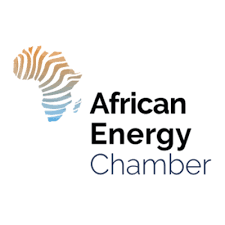 10 May 2013, Abuja – The Trade Union Congress of Nigeria, TUC, has asked President Goodluck Jonathan to intervene in the face-off between the Nigeria Liquefied Natural Gas Ltd, NLNG, and the Nigerian Maritime Administration and Safety Agency, NIMASA.
10 May 2013, Abuja – The Trade Union Congress of Nigeria, TUC, has asked President Goodluck Jonathan to intervene in the face-off between the Nigeria Liquefied Natural Gas Ltd, NLNG, and the Nigerian Maritime Administration and Safety Agency, NIMASA.
The organisation wants the president to caution the NLNG over its alleged refusal to pay to NIMASA the statutory levies of 3 percent gross freight on international inbound and outbound cargoes carried by NLNG vessels engaged in cabotage trade.
Peter Esele and Musa Lawal, TUC’s president and secretary general, said in a statement: “The congress frowns at this act of ingratitude by NLNG, taking into cognizance the fact that at the inception of the LNG project in 1988/1989, the Federal Government did not only recognise the company’s pioneer status within the provisions of the Industrial Development (Income Tax Relief) Act 1971, but also magnanimously granted it a package of investment incentives including a ten-year tax holiday under the Nigeria LNG (Fiscal Incentives Guarantees and Assurances) Act Cap. N87 Laws of the Federation of Nigeria 2004, NLNG Act, on certain conditions.
“In 1997, the office of the Commander-in-Chief of the Nigerian Armed Forces had by a letter dated 20th August 1997 conveyed through the Federal Ministry of Transport directed that NLNG should comply with the extant law at the time, being the National Shipping Policy Act of 1987 which mandated it to pay the then 2 per cent statutory levy on international inbound and outbound cargo as well as submit to routine inspection by the relevant government agencies including the then National Maritime Authority.
“The directive notwithstanding, NLNG has over the years been importing project cargo into, and exporting LNG from Nigeria, using vessels belonging to its wholly-owned subsidiary, Bonny Gas Transport Limited and other chartered third party vessels without paying statutory levies to the Nigerian government as enshrined in section 15 (a) of NIMASA Act of 2007.
“This is criminal and the congress is of the opinion that LNG should pay for all the years it has circumvented the levies immediately. The Congress and of course Nigerians desire to know whether a registered company in Nigeria, local or foreign can refuse to pay tax to relevant authorities as enshrined in the law “through a veil threat” of scarcity of gas if not allowed to operate without paying statutory levies?
“The Congress and of course Nigerians desire to know whether tax exemption by way of pioneer status for a fixed period that has elapsed could be a basis for refusal to pay tax? The Congress and of course Nigerians desire to know whether NLNG is right in claiming that it is not bound to honour its accrued and continuing liabilities to NIMASA under section 15(a) of the NIMASA Act 2007.
“We also want to know whether NLNG is right in claiming that it is not bound to honour its accrued and continuing liabilities to NIMASA under section 43(a) of the Coastal and Inland Shipping (Cabotage) Act 2003. The incentives granted to NLNG under the NLNG Act were not meant to be and cannot be in perpetuity.
“Indeed, section 2 of the NLNG Act also embodies a rider which limits the tax holiday of the company to 10 years or when the cumulative average sales price of the liquefied natural gas reaches $3 per million metric British Thermal Units, MMBTU, as calculated in the first schedule to the Act, whichever is earlier.
“From our market intelligence, as at January 2004 which was the fifth anniversary of the production of the company, the New York Mercantile Exchange, NYMEX, indicated that the price of gas stood at $9 per million metric British Thermal Units, MMBTU. This meant that as at the said January 2004, the milestone for the expiration of the exemption period had been surpassed by 200 percent in the cumulative average sales price.”



